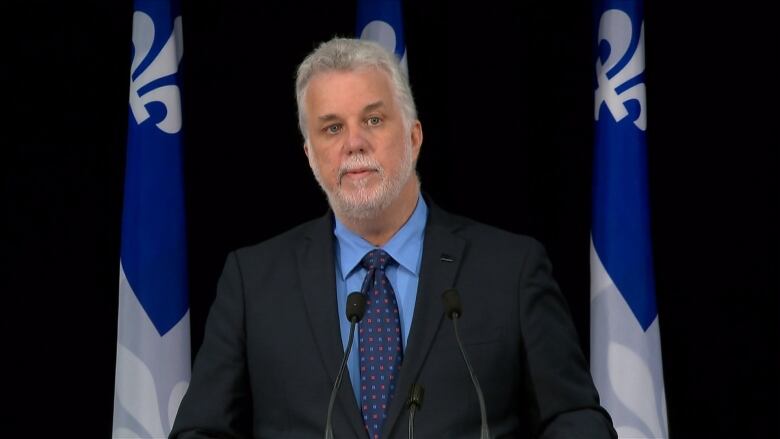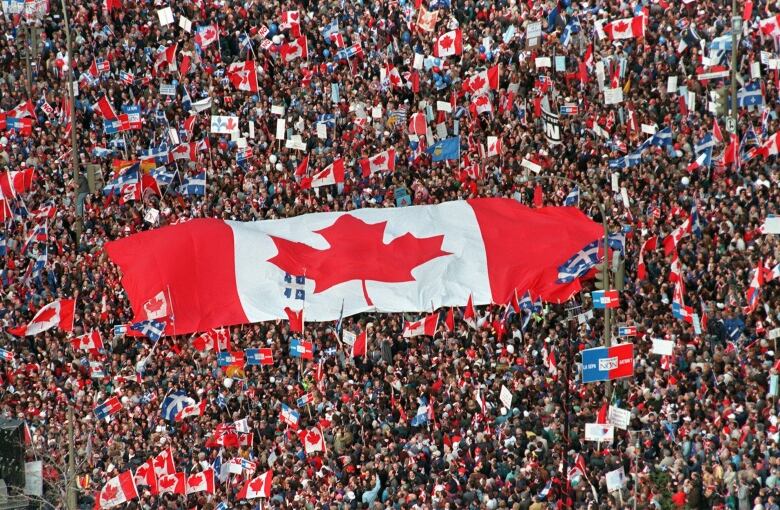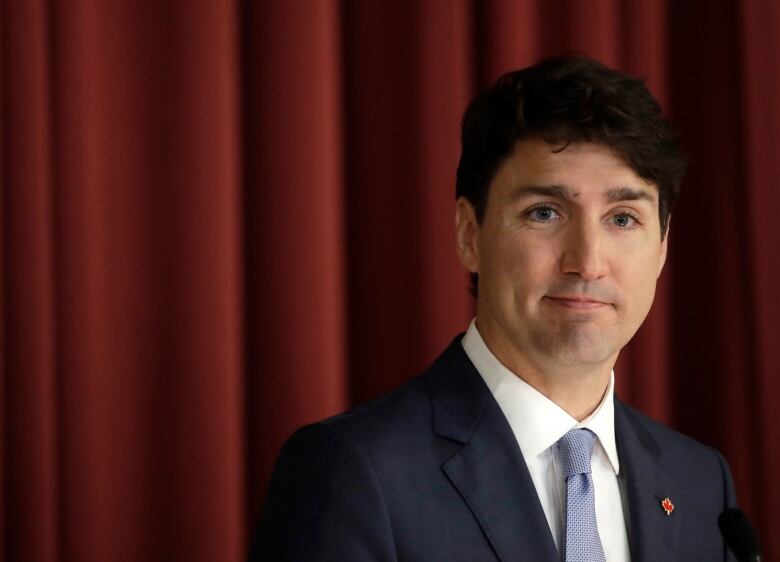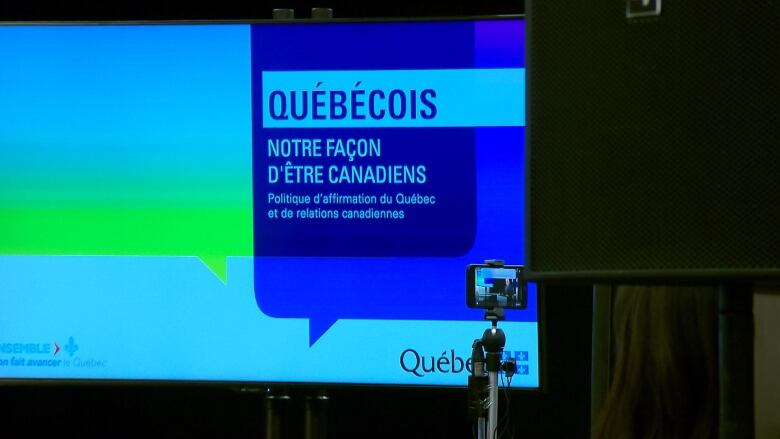Quebec's constitutional gambit: What's the point?
Premier Philippe Couillard, a staunch federalist, may want to reignite the debate to make it his legacy

Quebec Premier Philippe Couillard has announced his government hopes to resuscitate constitutional talks in Canada with the hope of finally getting Quebec's accord on the patriation of the Constitution.
It's the kind of news that immediately excites a tiny segment of Canada's population, most of them journalists, constitutional lawyers and political science professors.
But as someone who reported on the failures of both the Meech Lake Accord (1987) and the Charlottetown Accord (1992), I have to wonder, what's the point?
- Quebec has changed': Time is right to reopen constitutional debate, Quebec premier says
- Quebec plans to reopen constitutional debate, launch coast-to-coast discussion
A little background, and I'll try to make this mercifully short.
The Meech Lake Accord happened just a few years after the Constitution Act of 1982. Pierre Elliott Trudeau had either depending on your politics crafted a truly Canadian law, with a Charter of Rights and Freedoms, to reflect a modern Canada, or, cruelly tricked and isolated Quebec into a situation where it was the lone holdout and would be subjected to the tyranny of the Supreme Court when it came to preserving its culture and language.
It also established an amending formula, which made any further changes difficult.
Two years later, Trudeau was gone and Brian Mulroney was elected at the head of a federal Progressive Conservative government. When he decided to reach out to Quebec again, to bring it into the fold, his approach was met with cautious optimism by Liberal Premier Robert Bourassa.
After intensive talks, a deal was reached that would recognize Quebec's distinct society, among other things.
Accord died on the books
But since constitutional changes of this magnitude require approval of either seven provinces with at least 50 per cent of the population, or unanimity, depending on the clause, the process eventually foundered.
The three years that the first ministers had allotted for the approval process meant that many of the premiers were replaced in provincial elections. Their replacements were not bound by the agreement.
Times had changed and there was substantial public distaste for the accord. And in June of 1990, it died on the books.
In Quebec, resentment bubbled.
In Ottawa, it led to the creation of the Bloc Qubcois, a group of Liberal and Conservative MPs who left to form a party that was devoted to furthering Quebec's interests in Ottawa.
A national referendum
Two years later, in 1992, the premiers and Mulroney were at it again.
This time, they came up with a broader agreement that did not go as far in recognizing Quebec's distinctiveness but did try to reflect other social values and aboriginal participation.
The method of approving it was different too: a national referendum.
While the agreement started off being viewed positively in English Canada, one of the strongest voices against it was retired prime minister Pierre Trudeau, who became a prominent opponent, saying it would mean the end of Canada.
The No side won the referendum.
In Quebec, where the No side had also won because the accord was considered too weak, resentment bubbled. Again.

Since then, there has been no serious attempt to amend the Constitution.
What is Couillard up to?
So, the question is: should Philippe Couillard be attempting this?
On the plus side, if an agreement can be reached, Quebec would finally be welcomed into the fold.
This is probably more important symbolically than practically, but symbols do resonate.
Couillard is in a strong position to speak for the province. The Liberal government at the National Assembly has a solid majority and currently, the sovereignist forces are divided, with the PartiQubcois and Qubec Solidaire giving each other the cold shoulder, after a failed merger attempt.
On the down side, Couillard could be setting the spark that reignites the PQ's reason for being.

The Prime Minister dismissed it out of hand.
He probably speaks for many Canadians. And even if there was interest, there are obstacles.
Quebec's longstanding ally, Ontario, is already in pre-election mode, with Premier Kathleen Wynne trailing in the polls.
It's unlikely that she'll want to devote her team's energy to constitutional talks, when Ontarians want solutions to economic issues like skyrocketing real estate prices.
British Columbia is dealing with its own governing problems, with the legislature in a precarious minority government situation.
Lastly, Canada has evolved since the period when Meech Lake and Charlottetown were proposed.
It is even more diverse, and thus far less likely to agree to Quebec's most fundamental demand: that it be recognized as special, part of the duality that formed the basis of French and English Canada hundreds of years ago.
Other provinces and Indigenous groups will likely raise issues they'd like to see resolved.
Saskatchewan's premier says equalization payments should be reviewed, since they benefit Quebec at the expense of his province.
So, if the likelihood of failure or non-response seems high, why is Philippe Couillard engaging in this strategy?
He says his 200-page talking points are meant to be pedagogical, to get things moving again.

Couillard, a staunch federalist, may honestly want this to be his legacy.
Right now, he's left his mark as a leader who slashed social spending to balance a budget. Hardly the stuff legends are made of in Quebec.
He's had to fight off constant hints that his government has somehow been involved in corrupt financing practices. And he too, is heading into election territory: likely next year.
Making an attempt to find an honourable solution to a decades-old humiliation could be the act that finally endears him to Quebecers.
Philippe Couillard could be hoping that the austerity, the whispers of scandal, the personal unpopularity will be overshadowed by a victory on the national stage.
But the odds against him achieving anything are staggeringly bad. And his constitutional foray will likely be a footnote in the long textbook of failed constitutional talks in Canadian political history.












_(720p).jpg)


 OFFICIAL HD MUSIC VIDEO.jpg)
.jpg)



























































































